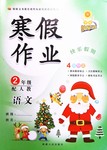题目内容
A study found that young people have a stronger and more unpleasant scent (气味) than the elderly,while elderly people’s smell was the most distinctive,less intense and unpleasant. Researchers said the change in our smell is driven by the chemicals we release through our glands (腺) and the bacteria on our skin.
To test whether or not it really exists,scientists collected a series of samples from three groups of 12 to 16 donors,aged 20 to 30,45 to 55 and 75 to 95.Volunteers wore special T-shirts fitted with underarm pads (护垫) as they slept for five nights,after which the pads were cut up and put in glass jars. A separate group of 41 people aged 20 to 30 was then asked to smell two jars at a time and asked which group of the donors was older,as well as rating how strong and unpleasant each smell was.
When asked to specify whether a particular sample was from a young,middle aged or old person,they were much more successful at identifying older people. Despite being the most distinctive,the older people’s smell was also rated as being obviously less intense and less unpleasant than those from the other groups.
Researchers said their findings appeared to contradict people's negative ideas about the old person’s smell but admitted other factors,like smelly breath or skin,could be to blame for its bad reputation.
“Similar to other animals,humans can give off body scents that allow us to identify biological age,avoid sick individuals and pick a suitable partner. Elderly people have a distinctive scent that younger people consider to be not very unpleasant. This was surprising given the popular conception of old age scent as smelly. However,it's possible that other sources of body scents,such as skin or breath,may have different qualities,” said Dr Johan Lundstrom,who led the study.
1.What do we know from the study?
A.People of different ages give off different scents.
B.People's scent can only be changed by the bacteria on their skin.
C.People show great interest in old people's scent.
D.People's scent can help distinguish a man and a woman.
2.Which of the following ages of people have the chance to participate in the study?
A.16 B. 77 C.74 D.56
3.According to the passage, people usually think that________.
A.old people's scent is simply from their breath
B.old people have a bad reputation mainly for their skin
C.old people's scent is terrible and unpleasant
D.old people give off a more pleasant scent
4.What is the author’s purpose in writing this passage?
A.To tell old people how to remove their terrible scent.
B.To prove that people often hold wrong ideas.
C.To show how researchers carried out their study about the scent.
D.To report the findings of a study about people's scent.
 学练快车道快乐假期寒假作业系列答案
学练快车道快乐假期寒假作业系列答案
